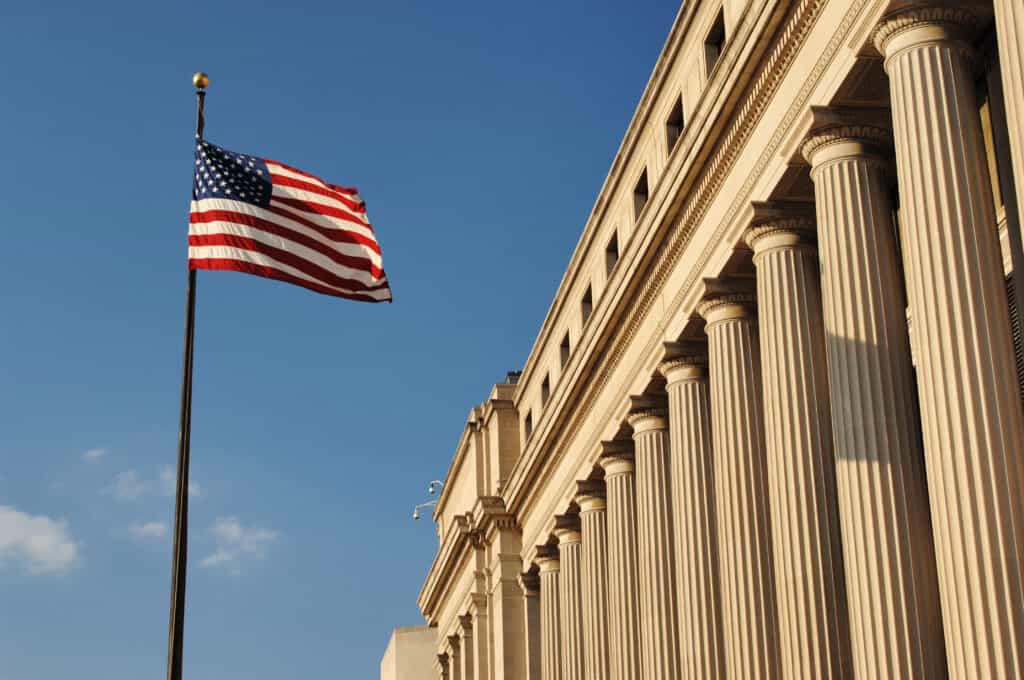
Key Takeaways:
- Legislative Action: The U.S. House of Representatives voted to repeal SEC’s Special Accounting Bulletin (SAB 121), which required banks to include clients’ cryptocurrency assets on their balance sheets, a measure not demanded for traditional assets.
- Bipartisan Support and Opposition: The repeal, H.J. Res 109, garnered bipartisan support and passed with 228 votes, though it faces opposition from President Biden and potential veto challenges.
- Regulatory Debate: The move highlights a broader debate on cryptocurrency regulation in the U.S., with criticisms of the SEC’s current approach as overly restrictive and detrimental to crypto custodianship by regulated banks.
The United States House of Representatives recently cast a decisive vote to overturn a contentious directive from the Securities and Exchange Commission (SEC), known as Special Accounting Bulletin (SAB 121).
This guidance had effectively restricted banks from holding cryptocurrency assets for their clients.
U.S. House overturns unfavorable SEC accounting policy that prevented highly regulated financial firms from holding Bitcoin $BTC and Crypto pic.twitter.com/3oQQMMs4Wz
— Barchart (@Barchart) May 8, 2024
Introduced in March 2022, SAB 121 mandated that banks list clients’ crypto assets on their balance sheets—a requirement not imposed on traditional assets like securities.
This regulation had been criticized for treating digital assets differently and potentially stifling the willingness of regulated banks to serve as crypto custodians.
The bill to overturn SAB 121, H.J. Res 109, received bipartisan support, passing with a total of 228 votes—21 from Democrats and 207 from Republicans—against 182 opposing votes.
🚨 NEW: 🇺🇸 US House votes to overturn SEC rule preventing highly regulated financial firms from holding #Bitcoin and crypto. pic.twitter.com/Urztr5zm5m
— SolanaFloor | Powered by Step Finance (@SolanaFloor) May 9, 2024
Republican Congressman Mike Flood, who introduced the resolution, argued that SAB 121 unfairly penalized banks interested in crypto custody, as these assets are typically held off-balance sheet.
Despite the bill’s passage in the House, it faces a significant hurdle. President Joe Biden has expressed strong opposition, signaling a potential veto.
The White House, on May 8, reiterated its disapproval, stating the bill could undermine the SEC’s efforts to protect investors and ensure the stability of the financial system by limiting the agency’s regulatory authority over crypto-assets.
BREAKING 🚨 US House votes to overturn SEC rule preventing highly regulated financial firms from holding $BTC and crypto
— StocktwitsCrypto (@StocktwitsCrypt) May 8, 2024
More institutional money incoming?#Bitcoin bulls right now… pic.twitter.com/gQ9EeXndhQ
The debate over SAB 121 underscores the ongoing conflict within the U.S. government regarding cryptocurrency regulation.
SEC Commissioner Hester Peirce and other lawmakers have criticized the SEC’s approach under Chair Gary Gensler, describing it as regulatory overreach.
The House Financial Services Committee (HSFC) echoed this sentiment, with Chairman Patrick McHenry citing the bulletin as a prime example of excessive regulation.
BREAKING: 🇺🇸 Legislation that would overturn SEC rule preventing highly regulated financial firms from custodying #Bitcoin and crypto PASSES the house. pic.twitter.com/XRKt84ML0M
— Bitcoin Magazine (@BitcoinMagazine) May 8, 2024
By challenging SAB 121, legislators aim to eliminate barriers that prevent regulated financial institutions from acting as custodians of digital assets, thus promoting consumer protection in the burgeoning field of cryptocurrency.

